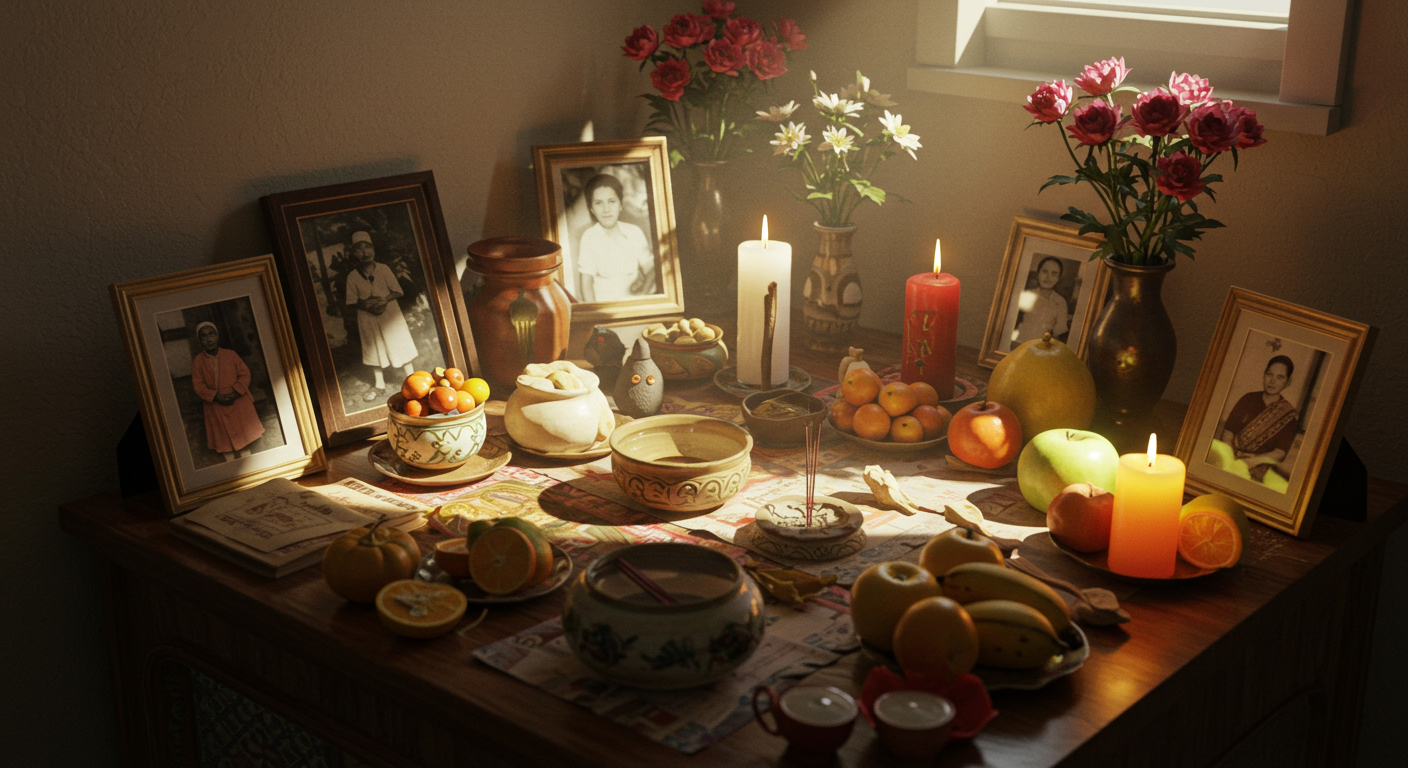Ancestral altars are sacred spaces dedicated to connecting with your lineage, paying homage to those who came before you, and receiving guidance and protection from the spiritual realm. In African traditions, honoring the ancestors is a foundational spiritual practice, seen not as worship, but as a way of maintaining family ties across the realms of the living and the departed.
1. What Is an Ancestral Altar?
An ancestral altar is a physical space—usually a table, shelf, or corner of a room—set aside to represent your family line. It holds symbolic items like photos, heirlooms, candles, and offerings. This space becomes a portal through which you can pray, reflect, and spiritually commune with your ancestors.
2. Why Create One?
Creating an altar is not about superstition; it’s about remembrance, respect, and relationship. In many African cultures, ancestors are viewed as guides and protectors who deserve recognition and gratitude. An altar helps you:
Feel grounded in your identity.
Seek clarity and guidance in decision-making.
Cultivate daily spiritual mindfulness.
3. What to Include
Your altar can be as simple or elaborate as you choose. Common items include:
Photographs of departed family members.
A white cloth, representing purity and light.
Candles or oil lamps, symbolizing illumination and presence.
Water, representing the ancestral realm and spirit life.
Offerings like food, drinks, fruits, or flowers.
Personal items such as jewelry, books, or cultural artifacts.
If you don’t have photos or names of ancestors, you can still honor “known and unknown” forebears.
4. How to Use the Altar
Daily greetings or prayers: Acknowledge your ancestors each morning or evening.
Pour libation: Use water or a drink (like gin or palm wine) and speak aloud your thanks or petitions.
Leave offerings: During life milestones or when seeking help, place symbolic gifts on the altar.
Listen: After speaking, sit in silence. Ancestors may speak through dreams, intuition, or signs.
5. Respect and Protection
Never place the altar near disrespectful areas (like the bathroom), and ensure it’s a clean, calm space. You may wish to light incense or burn cleansing herbs before engaging with the altar to create a spiritually safe atmosphere.
Honoring ancestors is not about the past—it’s about living the present with wisdom and reverence.



